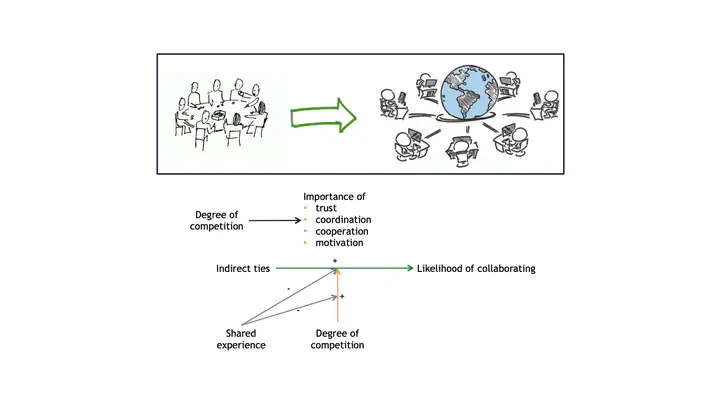
With the use of technology, today individuals distributed worldwide are collaborating to produce goods and services ranging from software to free encyclopedias on the digitally enabled environments. Eventually, that interaction between members constitutes a social network of collaboration within the platforms. When the constraints of physical location and geography are removed, there are no theoretical bounds on the size of the network, therefore; when compared with conventional collaboration networks, in general, those networks are larger in scale. Moreover, when technology mediates social relationships, it creates new interaction dynamics.
Digitally enabled social networks
- provide public goods, such as the collaboratively edited encyclopedia Wikipedia and open-source software projects.
- influence the conduct of economic activity in organizations by for example crowdsourcing work or intra-firm off-shore (virtual) collaboration.
- some leading edge enterprises are using the power of digitally enabled social networks to transform the dynamics of their internal organizations from command-and-control to connect-and-coordinate. Such networks are going to become an increasingly viable organizational form, therefore, there is clearly a need for research that sheds light on their technical, behavioral, and economic challenges and implications, as well as for a more detailed understanding of how the power of such networks can be benefited.
So, social networks constructed on digital platforms are becoming increasingly pervasive in all aspects of individual and organizational life. To gauge the effectiveness and potential impact of these networks, it is important to understand how they form and evolve. Network studies state that a network’s current characteristics reshape its evolution. On the other hand, what is the role of competitive environment on these dynamics is a question to answer. In this study, we address the question that what is the impact of degree of competition in the platform on individuals’ collaborative activities. To understand that we use a dataset scraped from Kaggle, which is a crowdsourcing contest platform that brings machine learning experts and firms together.